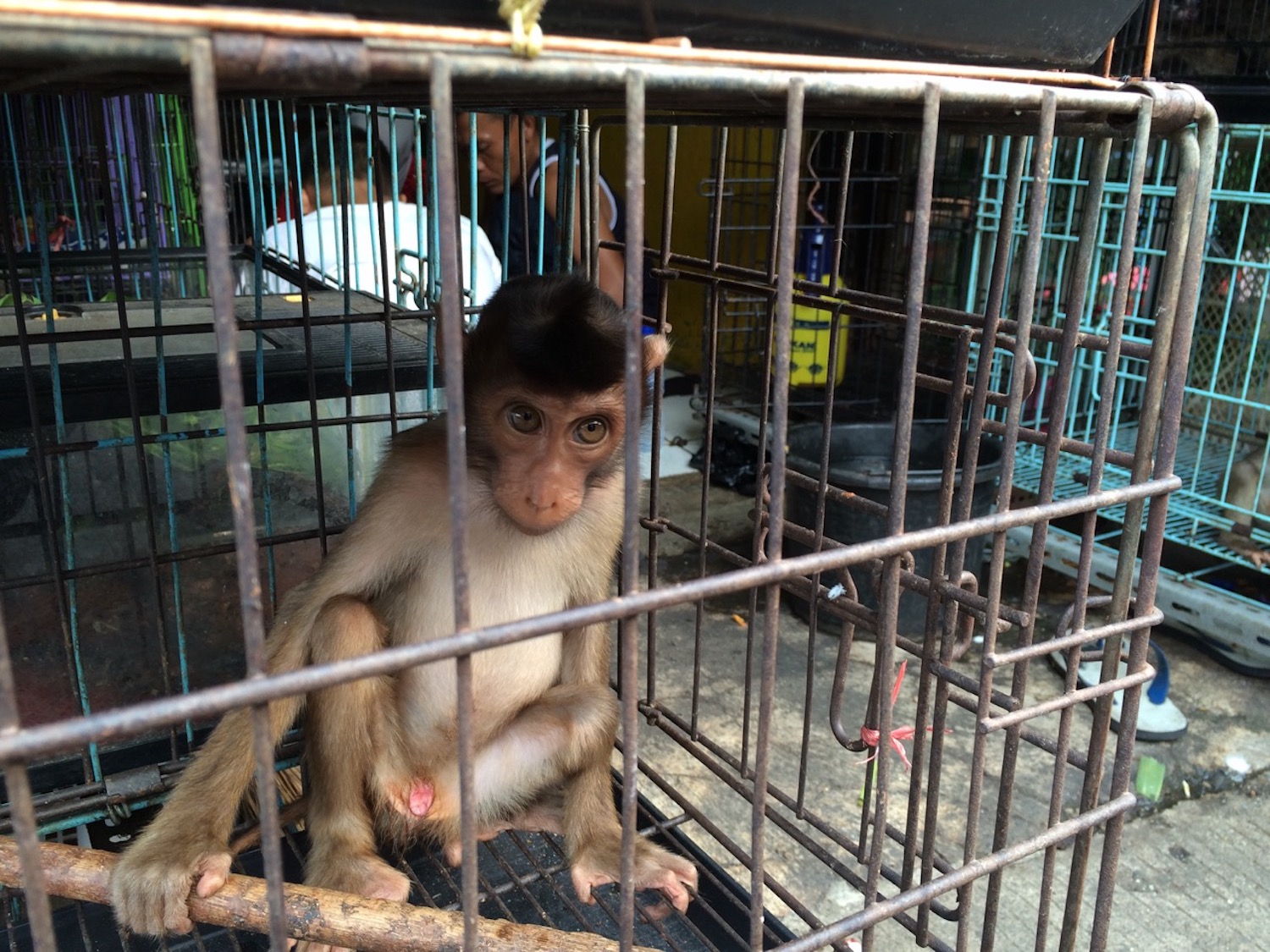Scientists Breed Monkeys With Human Genes in ‘Ethical Nightmare’ Experiment

Credit to Author: Gavin Butler| Date: Tue, 16 Apr 2019 16:29:48 +0000
Scientists in China have created a new type of monkey by genetically editing macaque embryos to be more like us. In an attempt to figure out what it is about humans that makes us so uniquely intelligent among primates, researchers introduced copies of the human brain gene “microcephalin” into the embryos of 11 macaque monkeys to see if it would make them any smarter. Six of those monkeys died, but the remaining five specimens were subjected to a series of memory tests and MRI brain scans in order to gauge their intellectual acumen. The study, published last month, claims to be “the first attempt to experimentally interrogate the genetic basis of human brain origin using a transgenic monkey model.”
While the brains of these “transgenic monkeys” didn’t turn out to be any bigger than the average macaque’s, they did develop over a longer period of time, China Daily reports—a trait that’s more typical of human brains. The monkeys also performed better on short-term memory tasks, and displayed shorter reaction times, than their wild peers. Researchers believe the introduction of microcephalin is the reason behind these “human-like” qualities, and suspect that this might go some way towards explaining why we humans are so much smarter than our primate relatives.
But not everyone is feeling quite so optimistic about the research. Barbara J. King, an emerita professor of anthropology at Virginia’s College of William and Mary and author of the book How Animals Grieve, told Vox that the experiments constitute “an ethical nightmare.
“More of the genetically altered monkeys—six—died than lived, so right off the bat we see that the procedure is often lethal,” Barbara said. “Regarding the five survivors, what kind of lives will they have going forward, altered as they are and confined to an experimental laboratory?”
Even one of the research paper’s listed co-authors has cast ethical uncertainty over the experiment. Martin Styner, a University of North Carolina computer scientist and specialist in MRI, told MIT Technology Review that he considered taking his name off the final paper, claiming there was no one in the West who would publish it.
“There are a bunch of aspects of this study that you could not do in the US. It raised issues about the type of research and whether the animals were properly cared for,” Martin said—further suggesting that these kinds of studies, which aim to unpack broad evolutionary questions by experimenting on transgenic monkeys, don’t point in “a good direction.
“Now we have created this animal which is different than it is supposed to be,” he said. “When we do experiments, we have to have a good understanding of what we are trying to learn, to help society, and that is not the case here.”
Regardless of the ethical pitfalls, though, it’s worth flagging how small the sample size used in this experiment actually was. Five modified monkeys isn’t much to go off when it comes to reaching conclusions about how microchepalin affects brain development. And even Bing Su, the geneticist at the Kunming Institute of Zoology who led the research, is aware of that.
In an email to MIT Techology Review, Bing admitted that the small handful of monkeys was a limitation of the study. His solution? Make more monkeys. The controversial geneticist is in the process of generating more sample specimens for his Frankensteinian experiments, and even has his eye on other brain evolution genes that he can test in the future. Among them is a DNA variant called SRGAP2C, otherwise known as the “missing genetic link” for its probable role in the emergence of human intelligence.
Bing said he’s been adding the gene to monkeys, but is yet to see any convincing results.
Follow Gavin on Twitter or Instagram
Sign up for our newsletter to get the best of VICE delivered to your inbox daily.
This article originally appeared on VICE ASIA.